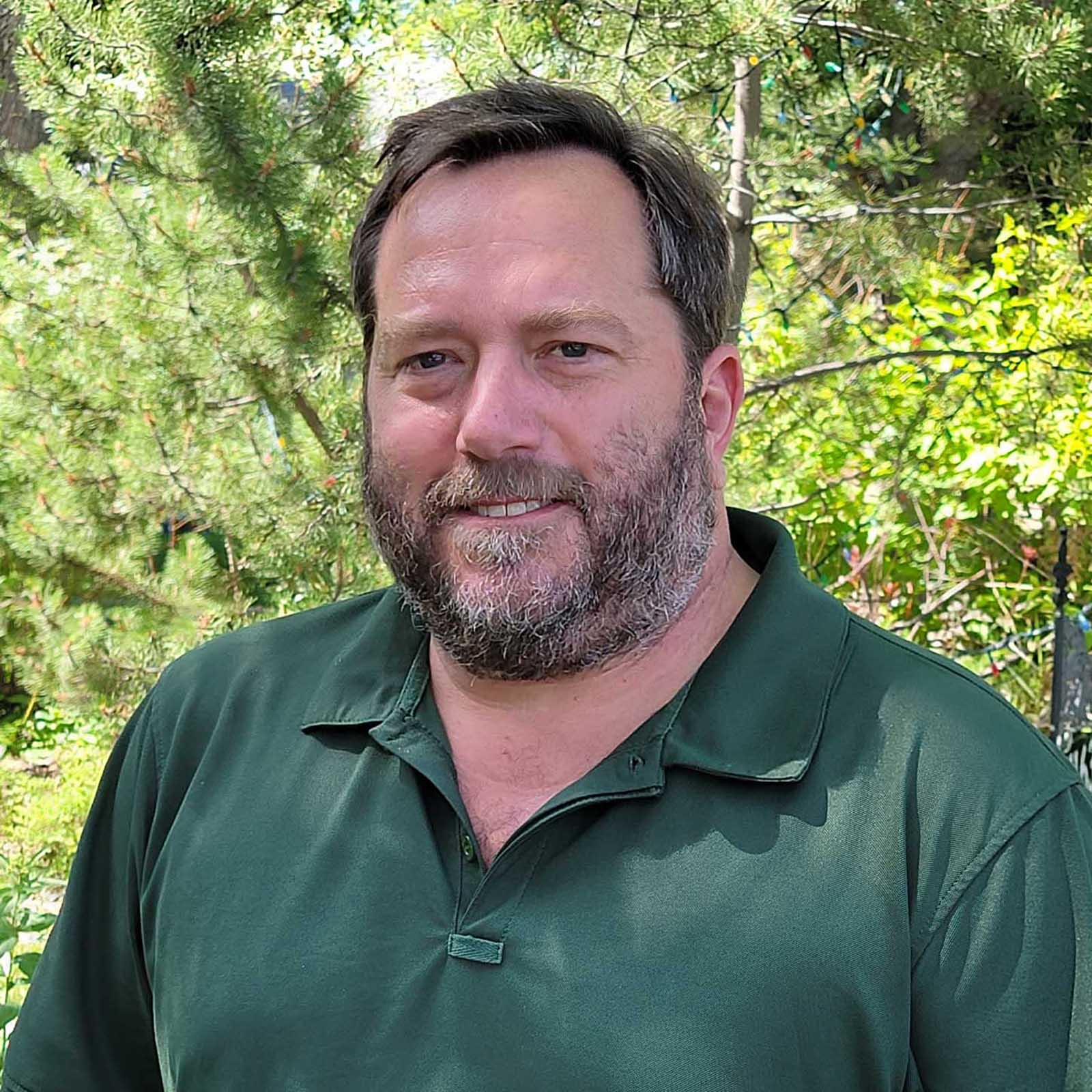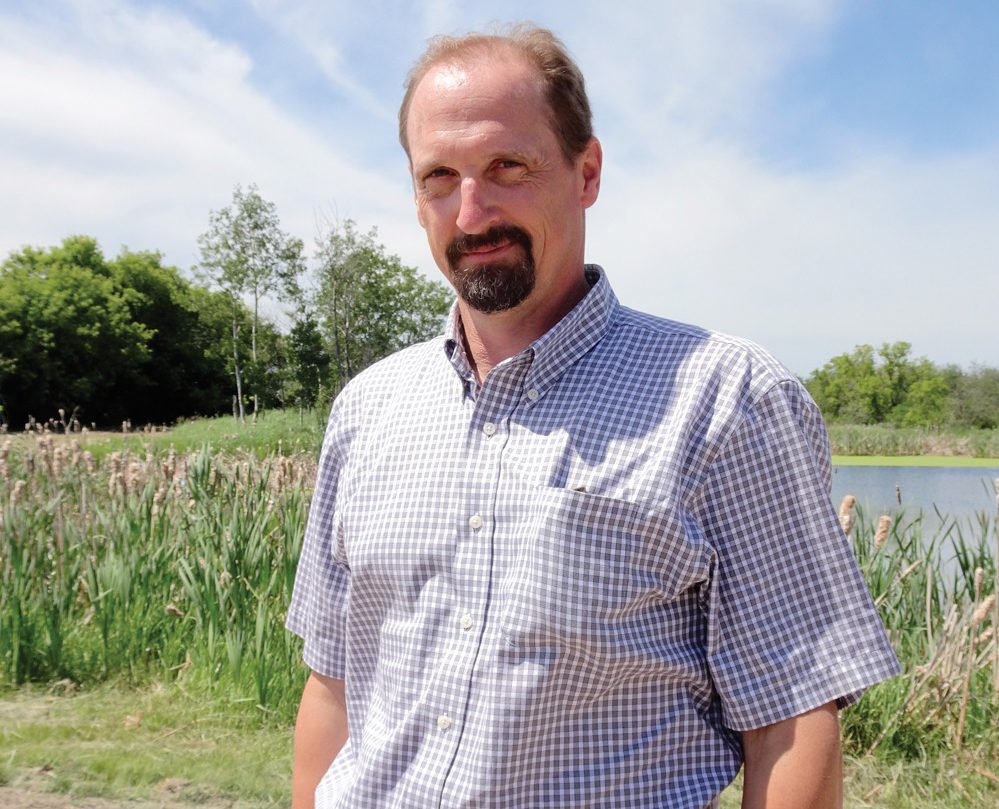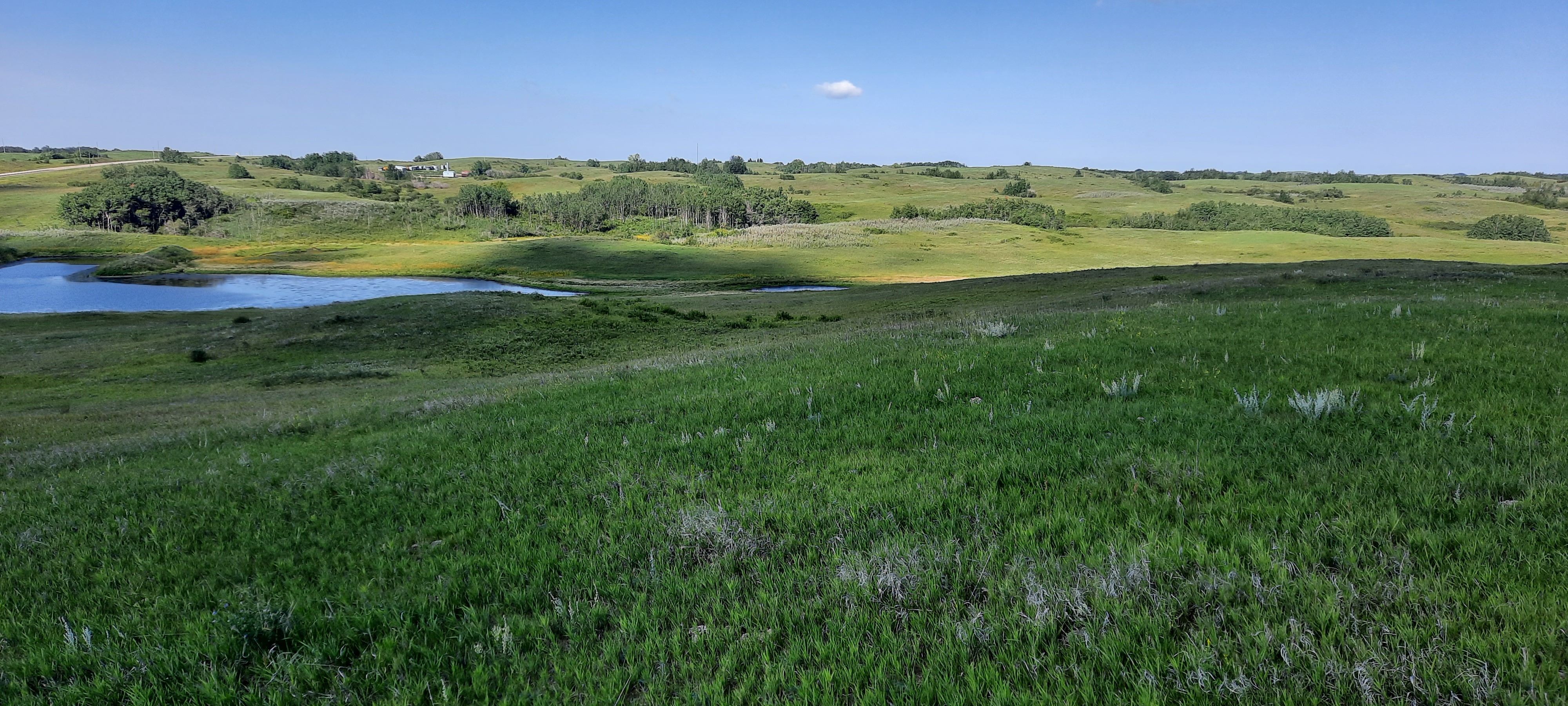James Cahill (Project Lead)Professor of Ecology University of Alberta Office: B717a Bio Science - Botany Wing 11355 - Saskatchewan Drive Edmonton AB, T6G 2E9 Canada | James (JC) Cahill is a professor of ecology in the Department of Biological Sciences at the University of Alberta. He arrived at the U of A in 1999, soon after receiving his Ph.D. in 1997 from the University of Pennsylvania. Over the past 24 years, the Cahill lab has played a significant role in the mentorship and development of more than 150 individuals across various stages of their careers, with alumni finding success in diverse fields such as industry, government, and academia. JC and his lab group are experimental plant ecologists, studying both grassland community ecology and function as well as the seemingly disparate field of plant behavioural ecology. The Cahill lab takes an experimental approach to better understand how plants interact with each other, their local environment, and other taxa (e.g. soil microbes, herbivores, etc.). This work crosses disciplinary boundaries which include behavioural sciences, microbiology, botany & zoology and grassland ecology. Cahill has led multiple projects, including research as the principal investigator on two NSERC Strategic grants focused on understanding the impacts of factors such as drought, warming, and defoliation in grasslands, as well as the effects of the mountain pine beetle on soil microbiome functionality in Alberta forests. Additionally, he has contributed to a collaborative project investigating the consequences of smooth brome invasion on native plant biodiversity in Alberta grasslands. Cahill is currently co-leader of CAT-G, Climate Action Through Grazing, a 6.3M project funded by Genome Canada, RDAR, and AAFC focused on understanding how to support Canada’s Net Zero by 2050 ambition through an integrated understanding of rangeland ecosystems in Canada. | A Batbaatar, CN Carlyle, EW Bork, SX Chang, JF Cahill Jr. 2023. Differential sensitivity of above-and belowground plant biomass to drought and defoliation in temperate grasslands. Agriculture, Ecosystems & Environment 356, 108660. Z Ma, EW Bork, B Attaeian, JF Cahill Jr, SX Chang. 2022. Altered precipitation rather than warming and defoliation regulate short-term soil carbon and nitrogen fluxes in a northern temperate grassland. Agricultural and Forest Meteorology 327, 109217. JSJ Grenke, EW Bork, CN Carlyle, MS Boyce, JF Cahill. 2022. Limited impacts of adaptive multi‐paddock grazing systems on plant diversity in the Northern Great Plains. Journal of Applied Ecology 59(7), 1734-1744. C Liu, T Groff, E Anderson, C Brown, JF Cahill Jr, L Paulow, JA Bennett. 2023. Effects of the invasive leafy spurge (Euphorbia esula L.) on plant community structure are altered by management history. NeoBiota 81, 157-182. MA Dettlaff, N Erbilgin, JF Cahill Jr. 2021. An invasive grass and litter impact tree encroachment into a native grassland. Applied Vegetation Science 24 (4), e12618. Zi Ma, SX. Chang, EW. Bork, DF Steinaker, SD Wilson, SR White, JF. Cahill, Jr, M Weiser. 2020. Climate change and defoliation interact to affect root length across northern temperate grasslands Functional Ecology 34(12), 2611-2621.
|
|
Carolyn Fitzsimmons (Project Lead)Associate Professor University of Alberta 5-20 Agriculture and Forestry Blg. University of Alberta Edmonton AB, T6G 2P5. Canada Tel: (780) 719- 4852 | Dr. Fitzsimmons received her Ph.D. in 2006 at Uppsala University, Sweden. She is a Research Scientist at Agriculture and Agri-Food Canada, Lacombe, Alberta, and an Associate Professor in the Faculty of Agricultural, Life and Environmental Sci (ALES), Department of Agricultural, Food and Nutritional Science (AFNS) at the University of Alberta. Dr. Fitzsimmons is particularly interested in exploring the potential for permanent changes in gene expression resulting from nutritional and other environmental factors (epigenetics). Her current work involves enhancing livestock production through genetic methodologies, with specific emphasis on traits such as RFI (Residual Feed Intake) and enteric methane, and processes such as epigenetics, and fetal programming. | Shirzadifar A, Miar Y, Plastow G, Basarab J, Li C, Fitzsimmons C, Riazi M, & Manafiazar G. (2023) A machine learning approach to predict the most and the least feed–efficient groups in beef cattle. Smart Agricultural Technology 5: 100317. Behrouzi A, Colazo C, Li C, & Fitzsimmons C. (2022) First-service pregnancy rate among beef heifers with different residual feed intake. Canadian Journal of Animal Science 0(0): 1-4. Foroutan A, Wishart DS, & Fitzsimmons C. (2021) Exploring Biological Impacts of Prenatal Nutrition and Selection for Residual Feed Intake on Beef Cattle Using Omics Technologies: A Review. Frontiers in Genetics, 12. DOI: 10.3389/fgene.2021.720268 Meale SJ, Ruiz-Sanchez AL, Dervishi E, Roy BC, Paradis F, Juárez M, Aalhus J, López-Campos Ó, Das C, Li C, Block H, Colazo MG, Straathof C, Bruce HL, & Fitzsimmons C. (2021) Impact of genetic potential for residual feed intake and diet fed during early- to mid-gestation in beef heifers on carcass characteristics and meat quality attributes of their castrated male offspring. Meat Science, 182, 22. DOI: 10.1016/j.meatsci.2021.108637 Manafiazar G, Fitzsimmons C, Zhou M, Basarab JA, Baron VS, McKeown L, & Guan LL. (2021) Association between fecal methanogen species with methane production and grazed forage intake of beef heifers classified for residual feed intake under drylot conditions. Animal, 15, 100304. DOI: 10.1016/j.animal.2021.100304 Devos J, Behrouzi A, Paradis F, Straathof C, Li C, Colazo M, Block H, & Fitzsimmons C. (2021) Genetic potential for residual feed intake and diet fed during early- to mid-gestation influences post-natal DNA methylation of imprinted genes in muscle and liver tissues in beef cattle. Journal of Animal Science, 99. DOI: 10.1093/jas/skab140 Foroutan A, Devos J, Wishart DS, Li C, Colazo M, Kastelic J, Thundathil J, & Fitzsimmons C. (2021) Impact of prenatal maternal nutrition and parental residual feed intake (RFI) on mRNA abundance of metabolic drivers of growth and development in young Angus bulls. Livestock Science, 243, 104365. DOI: 10.1016/j.livsci.2020.104365
|
|
Majid Iravani (Project Manager)Research and Development Manager University of Alberta North Campus Office: B-704B BioScience - Botany Wing 11355 - Saskatchewan Drive Edmonton AB, T6G 2E9 Canada | Dr. Majid Iravani is an applied research scientist specializing in developing sustainable solutions and technologies to ensure the responsible use of biodiversity and other natural resources, as well as the provision of goods and services by ecological and land-use systems. Dr. Iravani connects scientific research with the diverse needs of clients to address complex environmental challenges and inform decision-making processes. For over 15 years, he has focused on assessing biodiversity and ecological services within agricultural and livestock production landscapes, working to enhance their sustainability and resilience. His efforts contribute directly to advancing more sustainable practices and policies in these critical areas. With over a decade of experience in research-to-action and environmental sustainability initiatives across Canadian and international nature-dependent sectors, Dr. Iravani excels in leading and managing large-scale, collaborative, and complex research projects. | |
|
Brent Swallow (Co-Investigator)Professor of ALES University of Alberta 5-67 General Services Building 9007 - 116 St NW Edmonton AB, T6G 2H1 Canada | Brent Swallow is a Professor at the Faculty of Agricultural, Life and Environmental Sci - Resource Economics & Environmental Sociology. He is an environment and development economist. His research interests include: Climate change mitigation in agriculture and forestry, rural poverty and economic development, water and watershed management, market-based instruments for environmental management, land tenure and property rights, economics of land use and food deserts and local food economy. |
|
Cameron Carlyle (Co-Investigator)Professor of ALES University of Alberta 4-10H Agriculture/Forestry Centre 9011 - 116 St NW Edmonton AB, T6G 2P5 Canada | Cameron Carlyle is an Associate Professor in the Dept. of Agricultural, Food and Nutritional Science in the Faculty of Agricultural, Life and Environmental Sci, University of Alberta. He conducts research in grassland and rangeland ecology with an emphasis on the effects of grazing management on soil carbon storage and the mechanisms controlling carbon cycling. |
|
Changxi Li (Co-Investigator)Chair in Bovine Genomics University of Alberta 2-41 General Services Building 9007 - 116 St NW Edmonton AB, T6G 2H1 Canada | Dr. Li is Research Scientist with Agriculture and Agri-Food Canada (AAFC), AAFC Professor and AAFC Chair in Bovine Genomics at the Faculty of Agricultural, Life and Environmental Sci - Dept. of Agricultural, Food and Nutritional Science. His research focuses on bovine quantitative genetics and functional genomics. The current research interests include: (1) identification and characterization of genes for economically important traits including growth, feed efficiency, fat deposition, carcass merit traits, and fertility traits in beef cattle; (2) investigation of functions of DNA polymorphisms and elucidation of genetic mechanisms regulating growth, feed efficiency, fat deposition, meat quality, and fertility traits in beef cattle; (3) development of genomic tools to enable the beef industry to improve the above mentioned traits through genomic selection and genome assisted management. |
|
David Wishart (co-investigator)Professor Departments of Computing Science and Biological Sciences University of Alberta Edmonton AB, T6G 2E8 Office: 341 Athabasca Hall Canada Tel: 780-492-0383 | Professor in the Departments of Biological Sciences and Computing Science and a Fellow of the Royal Society of Canada. His extensive research interests encompass a wide range of fields, including metabolomics, proteomics, genomics, bioinformatics, analytical chemistry, food chemistry, natural product chemistry, molecular biology, protein chemistry, structural biology and nanotechnology and neuroscience. Some of his lab's most significant contributions have been in the area of protein chemical shift analysis and the prediction of protein structure. Dr. Wishart led the "Human Metabolome Project" (HMP), a comprehensive initiative involving multiple universities and investigators aimed at cataloging over 250,000 human metabolites in various human tissues and biofluids. | Vanessa Neveu, Geneviève Nicolas, Reza M Salek, David S Wishart, Augustin Scalbert. Exposome-Explorer 2.0: An Update Incorporating Candidate Dietary Biomarkers and Dietary Associations With Cancer Risk. Nucleic Acids Res. 2020 Jan 8;48(D1):D908-D912. DOI: 10.1093/nar/gkz1009. PubMed: 31724701 Wishart DS, Li C, Marcu A, Badran H, Pon A, Budinski Z, Patron J, Lipton D, Cao X, Oler E, Li K, Paccoud M, Hong C, Guo AC, Chan C, Wei W, Ramirez-Gaona M. PathBank: a comprehensive pathway database for model organisms. Nucleic Acids Res. 2020 Jan 8;48(D1):D470-D478. DOI: 10.1093/nar/gkz861. PubMed: 31602464 DS Wishart. NMR metabolomics: A look ahead. J Magn Reson. 2019 Sep;306:155-161. DOI: 10.1016/j.jmr.2019.07.013. PubMed: 31377153 Abdul-Hamid Emwas, Raja Roy, Ryan T McKay, Leonardo Tenori, Edoardo Saccenti, G A Nagana Gowda, Daniel Raftery, Fatimah Alahmari, Lukasz Jaremko, Mariusz Jaremko, David S Wishart. NMR Spectroscopy for Metabolomics Research. Metabolites. 2019 Jun 27;9(7):123. 23DOI: 10.3390/metabo9070123. PubMed: 31252628 Rosa Vázquez-Fresno, Albert Remus R Rosana, Tanvir Sajed, Tuviere Onookome-Okome, Noah A Wishart, David S Wishart. Herbs and Spices-Biomarkers of Intake Based on Human Intervention Studies–A Systematic Review. Genes Nutr. 2019 May 22;14:18. DOI: 10.1186/s12263-019-0636-8. PubMed: 31143299 Lipfert M, Rout MK, Berjanskii M, Wishart DS. Automated Tools for the Analysis of 1D-NMR and 2D-NMR Spectra. Methods in Molecular Biology (Clifton, N.J.). 2019. 2037: 429-449. DOI: 10.1007/978-1-4939-9690-2_24. PubMed: 31463859
|
|
M Derek MacKenzie (Co-Investigator)Associate Professor Faculty of ALES University of Alberta Office: 348E South Academic Building 11328 - 89 Ave NW Edmonton AB, T6G 2J7 Canada Tel: (780) 492-6388 | Associate Professor, Faculty of Agricultural, Life and Environmental Sci - Renewable Resources Dept at the University of Alberta. His research area focuses on Agricultural Soil Health. He is interested in examining how regenerative farm practices, including the use of compost and biochar, can increase carbon sequestration and reduce GHG emissions. |
|
Edward Bork (co-investigator)Professor Faculty of ALES University of Alberta Office: 4-10E Agriculture/Forestry Centre 9011 - 116 St NW, Edmonton AB, T6G 2P5 Canada Tel: (780) 492-3843 | Professor, Faculty of Agricultural, Life and Environmental Sci - Dept. of Agricultural, Food and Nutritional Science at the University of Alberta. Dr. Bork also serves as the Director of the Rangeland Research Institute at the University of Alberta. His research area includes Rangeland Ecology and Management. Major areas of investigation include the integrated control of weeds in pasture, agro-forestry production systems, landscape ecology including riparian grazing management, plant community responses to disturbance (grazing, drought and fire), forage agronomy and utilization, livestock-wildlife integration, rotational grazing applications, livestock behavior and production efficiency on pasture, and the ability of rangelands to provide multiple ecosystem services such as biodiversity, carbon storage, and greenhouse gas mitigation. |
|
Gleise Medeiros da Silva (co-investigator)Assistant Professor Faculty of ALES University of Alberta Office: 410 Agriculture/Forestry Centre 9011 - 116 St NW, Edmonton AB, T6G 2P5 Canada Tel: (780) 492-0237 | Assistant Professor and BCRC - Hays Chair in Beef Production Systems, Faculty of Agricultural, Life and Environmental Sci - Dept. of Agricultural, Food and Nutritional Science at the University of Alberta. Her research goals are to identify sustainable nutritional and management strategies able to enhance cattle health and performance, therefore, increasing profitability in the cow-calf sector. Her research interests include: stress mitigation, understanding the impacts of nutrition and management on physiology, immunity, and behavior of beef cattle, beef female nutrition and fetal-programming and identifying nutritional strategies in forage-based systems to reduce feeding costs. | |
|
Jonathan A. Bennett (co-investigator)Associate Professor Department of Plant Sciences University of Saskatchewan Office: 4D70 - Agriculture Building Saskatoon, SK Canada Tel: (306) 966-7492 | Associate Professor at the department of Plant Sciences, University of Saskatchewan. His lab focuses on basic and applied ecology focusing on plant-soil interactions. His research interests include: ecology and management of invasive species, plant-soil feedbacks, mycorrhizas, plant diversity and ecosystem functioning, functional traits and plant community assembly. | |
|
Le Luo Guan (co-investigator)Professor Department of Agricultural, Food, and Nutritional Science University of Alberta Office: 416F Agriculture/Forestry Centre 9011 - 116 St NW Edmonton AB, T6G 2P5 Canada Tel: (780) 492-2480 | Professor of Department of Agricultural, Food and Nutritional Science. Her research primarily delves into understanding the molecular intricacies of host-microbial interactions, focusing on the characterization of bovine gut microbial ecology and its functions through metagenomics/metatranscriptomics approaches. Furthermore, Dr. Guan investigates host gene expression utilizing a functional genomics approach, exploring the association between gut microbial ecology and crucial aspects such as feed efficiency, methane emission, and gut immunity development in both beef and dairy cattle. In addition to her microbial research, she conducts in-depth analyses of the bovine transcriptome, proteome, and non-coding microRNAs, aiming to unravel their roles in various economically significant traits related to cattle. | |
|
Malinda Thilakarathna (co-investigator)Assistant Professor Faculty of ALES University of Alberta Office: 4-10F Agriculture/Forestry Centre 9011 - 116 St NW, Edmonton AB, T6G 2P5 Canada Tel: (780) 492-9966 | Assistant professor, Faculty of Agricultural, Life and Environmental Sci - Dept. of Agricultural, Food and Nutritional Science at University of Alberta. His research focuses on technologies that reduce the need for synthetic nitrogen fertilizers to grow crops by replacing them with more natural, biological resources. His current research interests include: assessment of beneficial microbes (probiotics) for improving nitrogen fixation in legumes and non-legumes, evaluating biostimulants that can improve nutrient use efficiency and alleviate abiotic stress in plants, and discovering the physiological mechanisms and factors that influence nitrogen fixation and belowground nitrogen transfer from legumes to non-legumes. | |
|
Miles Dyck (co-investigator)Professor Faculty of ALES University of Alberta Office: 338A Earth Sciences Building 1223 Saskatchewan Drive NW, Edmonton AB, T6G 2E3 Canada Tel: (780) 492-2886 | Professor, at Faculty of Agricultural, Life and Environmental Sci - Renewable Resources Dept at University of Alberta. He is member of Canadian Society of Soil Science, Soil Science Society of America, Canadian Geophysical Union. His research areas include: Long-term agroecological experiments, soil fertility, transport processes, transport of mass and energy in managed and reconstructed ecosystems. | |
|
Roland Kröbel (co-investigator)Research Scientist Agriculture and Agri-Food Canada Lethbridge Research and Development Centre. 5403 1st Avenue South Lethbridge, AB Canada Tel: (403) 317-3434 | Research Scientist at Agriculture and Agri-Food Canada at the Lethbridge Research and Development Centre. His work focuses on the further development of AAFC's whole farm model Holos. He is interested in ecosystem modeling in agriculture, climate change, greenhouse gas emissions and N cycling. | |
|
Scott Chang (co-investigator)Professor Faculty of Agricultural, Life and Environmental Sciences Renewable Resources Dept. 11223 Saskatchewan Drive NW University of Alberta Edmonton AB, T6G 2E3 Canada Tel: (780) 492-6375 | Professor, Faculty of Agricultural, Life and Environmental Sci - Renewable Resources Dept. His research focuses on forest soil processes, soil microbial ecology, carbon sequestration, greenhouse gas emissions, application of N-15 tracer in forest soils research, forest fertilization, tree nutrition, forest ecophysiology, silviculture-soil management interactions, and land reclamation. | |
|
Scott Jeffrey (co-investigator)Professor Faculty of Agricultural, Life and Environmental Sciences Department of Resource Economics and Rural Sociology Office: 531 General Services Building 9007 - 116 St NW University of Alberta Edmonton AB, T6G 2H1 Canada Tel: (780) 492-5470 | Professor, Faculty of Agricultural, Life and Environmental Sci, Department of Resource Economics and Rural Sociology. His research focuses on Production and Resource Economics, Agricultural Business Management. Some of his research interests include: Productive efficiency in Canadian agriculture, agricultural risk management, environmental issues and agricultural production management and farm level economics of ecosystem service production. | |
|
Xiaoli Fan (co-investigator)Assistant Professor Faculty of Agricultural, Life and Environmental Sciences Department of Resource Economics and Environmental Sociology Office: 545 General Services Building 9007 - 116 St NW University of Alberta Edmonton AB, T6G 2H1 Canada Tel: (780) 492-4711 | Xiaoli Fan is an Assistant Professor, Faculty of Agricultural, Life and Environmental Sci- Department of Resource Economics and Environmental Sociology. She received her Ph.D. (2017) degree from the Dyson School of Applied Economics and Management, Cornell University, and her MSc (2009) and BA (2007) degrees in international economics from Wuhan University, China. Xiaoli’s research focuses on understanding consumer and producer behavior to inform better agricultural policies and decision-making. Her specific research interests include consumer preference for emerging food issues, agrifood sustainability, agrifood value chain coordination, antibiotic use in livestock, bioeconomic modeling, and agent-based modeling. | |
|



















